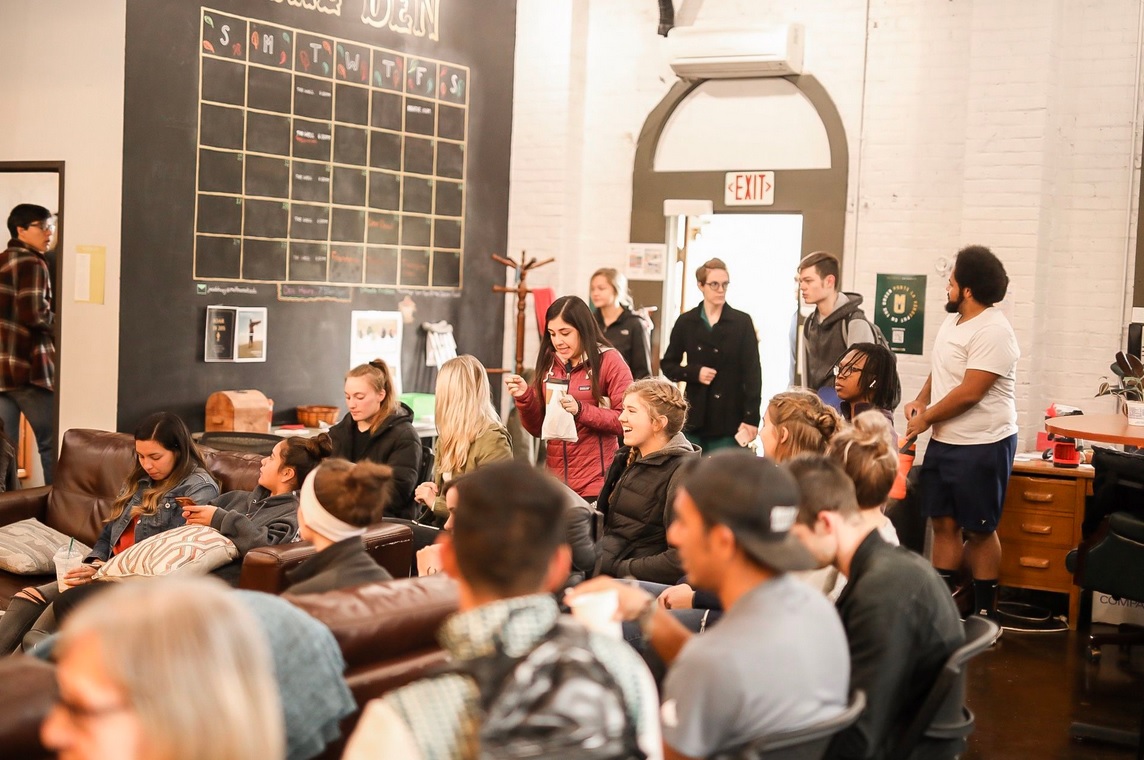
By Austin Davis,
Multnomah University
Multnomah University held its 3rd annual Mosaic Week; a series of events created to spark critical thinking and dialogue on issues of diversity, inclusion, cultural identity, and justice.
We see in the Scriptures that God is the Creator of all things and all people. He made human beings in His image, which gives humanity dignity and worth and purpose. Throughout the Scriptures, we see that God desires for the nations to see and know Him. Jesus taught and exemplified a supreme love for God, complemented by an authentic love for neighbor. We seek to be inclusive because it aligns with God’s love for us and his command to love our neighbor. The theme this year for Mosaic Week was MUnited. We asked our VP of Diversity and Inclusive Development, Jessica Taylor, to share more about Mosaic Week and her hopes for the future:
For some, Mosaic Week is gaining a reputation as a safe place to be engaged, and challenged to think about our brothers and sisters in Christ who are different. I am especially moved when I think about where Mosaic Week started. I think about the students in the past who sacrificed and advocated to get these conversations started. I stand on the foundation that those students built.
I believe that our job as The Diversity & Inclusive Development team is not to complete the work students started, but to recognize that God has us here in this season, in this time, to work through the issues we can. We want to take the next small step so the kingdom of God at MU can look more like the Kingdom we will experience in heaven.
Ultimately, we see this work as legacy-building not just problem-solving.
We are working at centering voices that have not been traditionally centered in conversations that, in the past, we may have been afraid to have. We trust that as God leads in these conversations that we will continue to hear His voice as we love and connect to one another in community.
We want Mosaic Week to begin and to continue conversations that matter about the issues we face as believers and as culturally engaged people. We want it to spark action, heart change, and institutional change. Mosaic week is not just about individuals coming together, which is necessary, but it is also about how our heart-change informs the systems that are in place. If we fail to make systemic, institutional changes, we will keep having the same conversation each year, which is not our goal. We want these conversation to move us forward, to the vision cast for us in God’s word.
My goal is for people to see Mosaic Week as wholly encompassing all of us, including the dominant culture. My desire is for every person to see Mosaic Week as a celebration of every member of our community. Whatever piece of the collective “mosaic” you relate to, I hope students can see themselves included in what God is creating. This conversation encompasses more than race and moves beyond to other aspects of diversity that are difficult to talk about like gender, socioeconomic status, mental illness, and many other facets of difference.
In a perfect world, we no longer need Mosaic week because we are doing the work and having conversations about things that matter, all the time. We realize that perfection may be out of reach, but becoming a community of people who are eager to listen, pursue God together, include others, and diversify our perspectives are worthwhile goals that we will continue to pursue as a community. Please continue to pray for us as we follow God’s leading in this space and in His call to love Him and one another.
– Jessica Taylor, VP of Diversity and Inclusive Development
Disclaimer: Articles featured on Oregon Report are the creation, responsibility and opinion of the authoring individual or organization which is featured at the top of every article.

